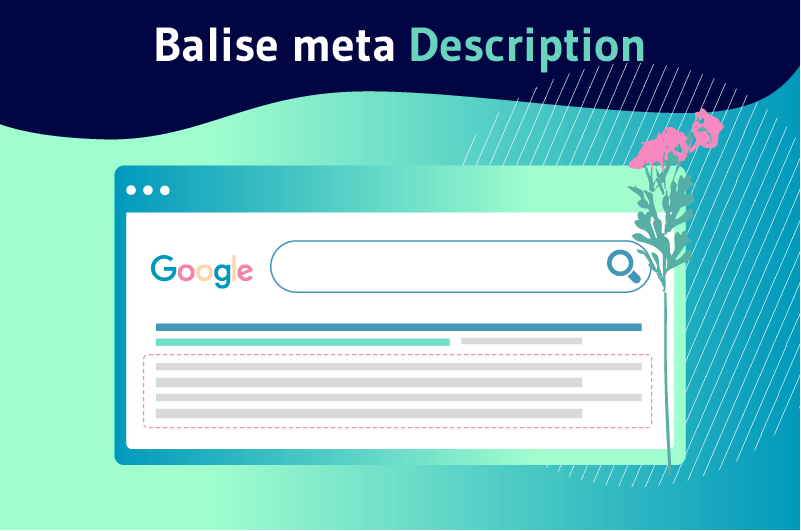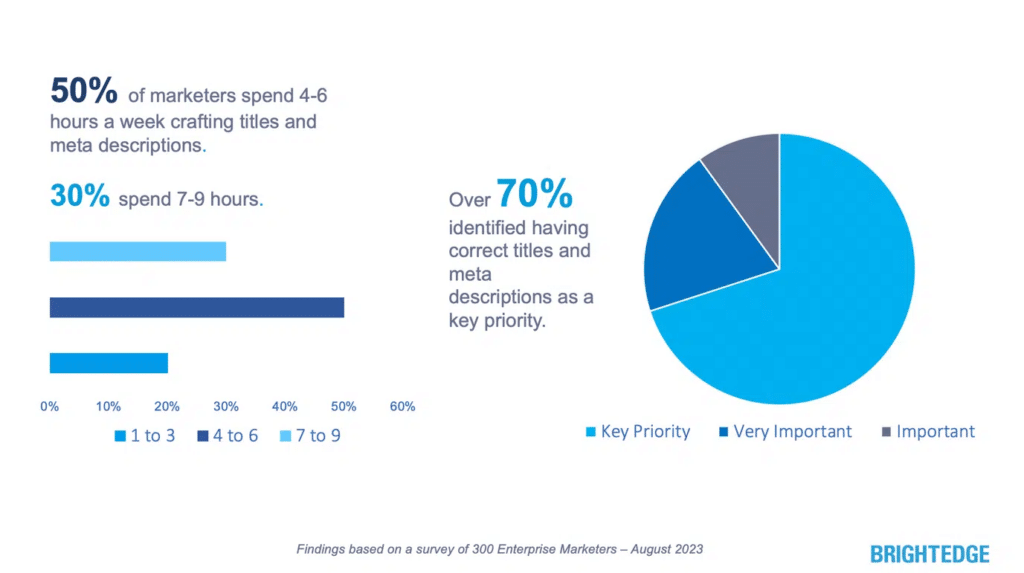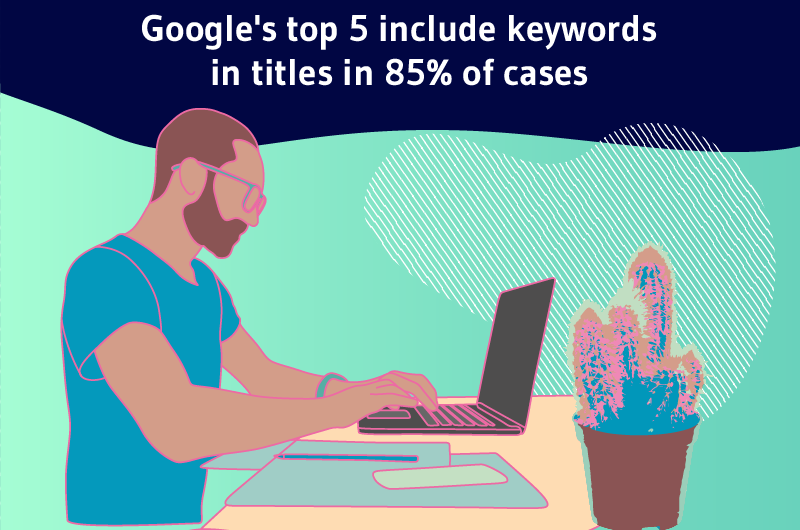Many people think that titles and meta-descriptions aren’t that important for SEO, and that they don’t really influence the search engine positioning of websites.
But is this really the case? BrightEdge conducted a study to analyze the impact of these elements on search results. In this article, we present the study and its main conclusions.
Titles and meta-descriptions in SEO
Although many people feel that Google is rewriting titles and meta descriptions, they are nonetheless an important aspect of SEO.

In fact, a recent study by BrightEdge, an SEO platform for businesses, and shared with Search Engine Land, shows as much.
The study reveals that:
- Titles containing keywords are in Google’s top 5 85% of the time;
- Meta-descriptions are present on 95% of pages in Google’s top 10;
- Titles and meta-descriptions that use capital letters, whether for the title or for proper nouns (such as brands or products), are on 90% of pages that are in Google’s top 5;
- Titles and meta-descriptions with grammatical errors are more frequent on pages lower down the search results (25%).
These figures confirm the importance of basic SEO elements, such as titles and meta-descriptions, in optimizing your Google ranking.
Although you can sometimes rank for a keyword without using it on your page, this is rarer. So take your time writing your titles and meta-descriptions.
Marketers spend more time writing titles and meta-descriptions
Many people are spending more time writing titles and meta descriptions. According to this recent survey, 50% and 30% of corporate marketers spend between 4 and 6 hours and 30% between 7 and 9 hours respectively per week on writing titles and meta-descriptions.

Source : searchengineland
Marketers attach great importance to these elements, as they are the first things web users discover before reading your content.
They also play a part in SEO, and your ability to write titles and meta descriptions well is crucial to your site’s ranking on Google.
BrightEdge’s study on titles and meta descriptions
This study is based on two sources of data:
- An analysis of 10,000 keywords in several major sectors (such as finance, commerce, tourism, insurance);
- A survey of 300 corporate marketing experts.
Both studies were conducted this month.
Keep in mind, however, that correlation does not imply causation. Keywords are not the only factor influencing a page’s ranking in Google’s top 5. There are other reasons for their visibility.
To sum up
In conclusion, this study not only shows how important fundamental elements such as titles and meta-descriptions still are for SEO.
It also shows that marketers are aware of this, and devote a great deal of time to their realization.

